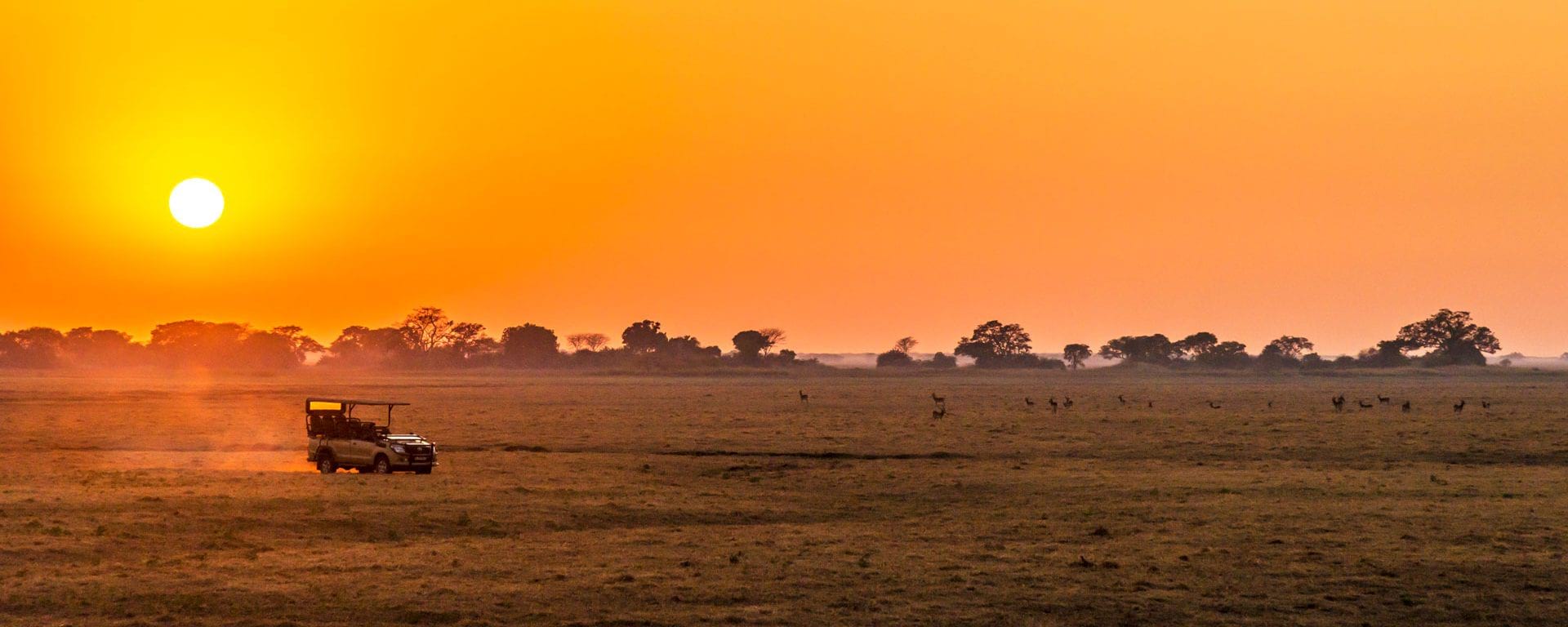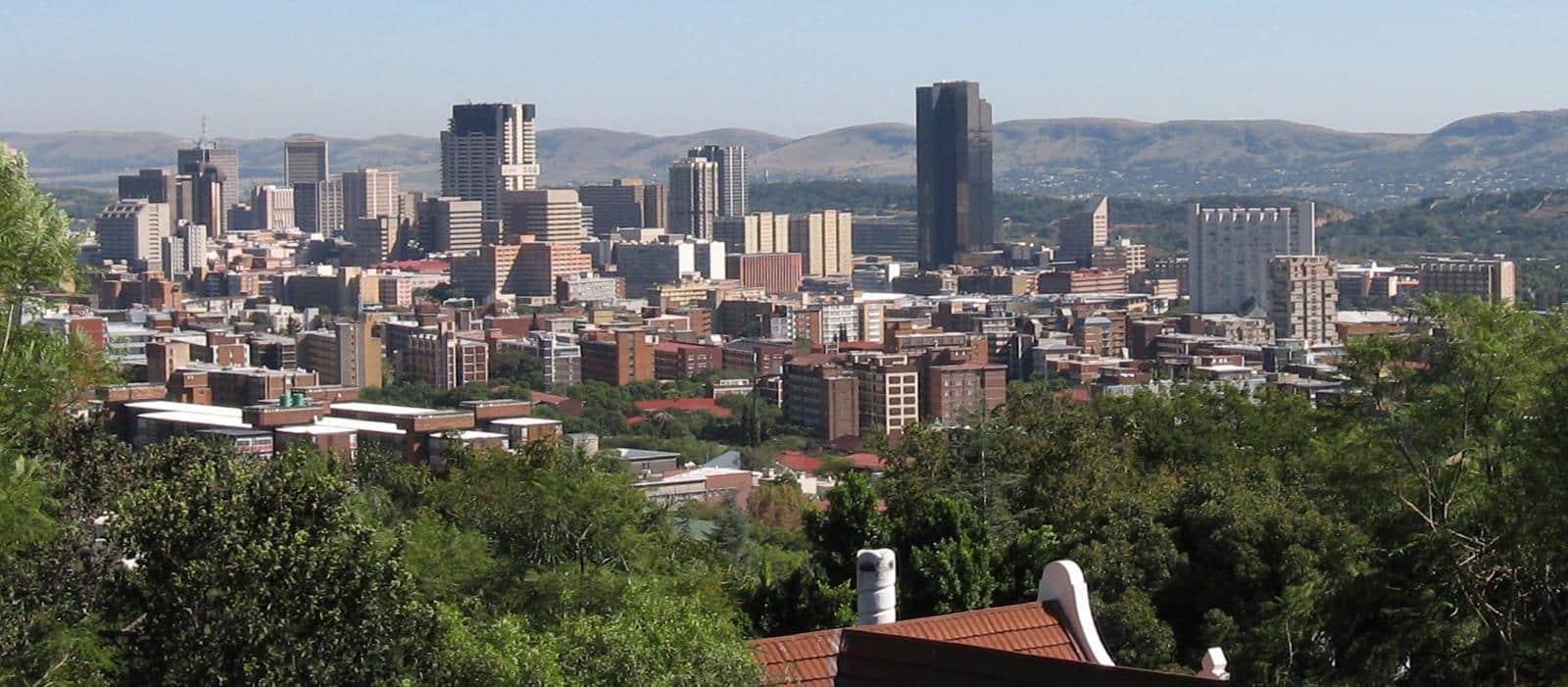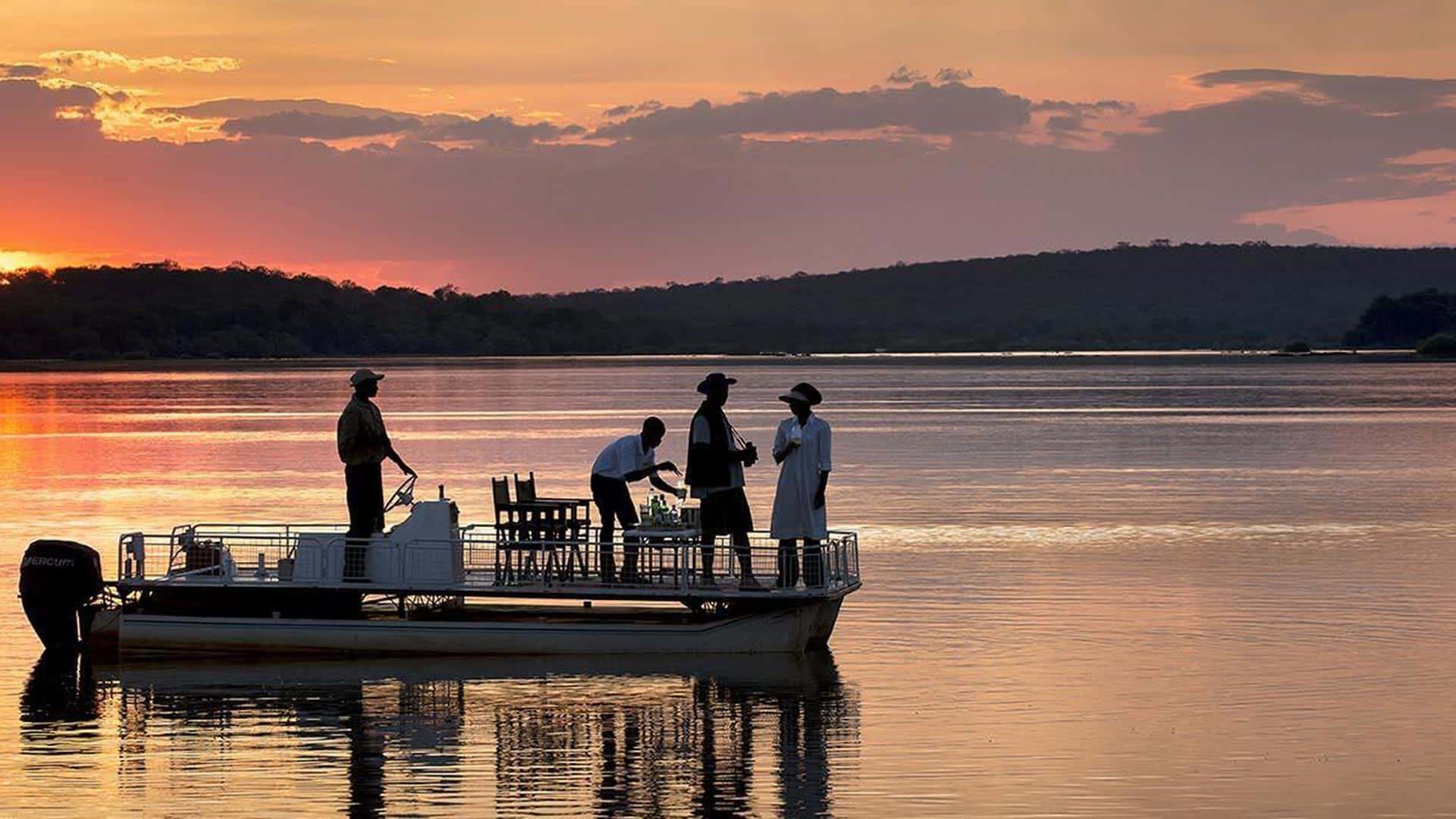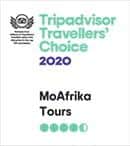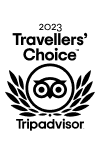Is South Africa safe?
That’s one of the first questions overseas travellers ask when talking about a holiday to South Africa.
Let’s not sugar-coat it! South Africa is exciting, dynamic and vibrant but it’s also has rampant socio-economic problems which goes together with high crime.
Corruption is at the root of many of the problems that impact on safety in the country and the wellbeing of its people. Corruption tragically robs the people of South Africa with the revenue and resources needed to uplift its people, create jobs, improve infrastructure and build the nation.
At the heart of it is South Africa suffers from extreme inequality; from desperately poor communities surviving on a barely-living wage and high unemployment in rural areas, to extremely wealthy belts in pockets of South Africa that are untouched by the plight of poverty.
On a trip to South Africa, you might find yourself on a modern four-lane highway, or on a pot-holed country road. You’ll walk through buildings that glisten with marble and glass features, and an hour later find yourself in a grubby building that hasn’t seen a fresh coat of paint for decades.
From plush five-star hotels and state-of-the-art airports and shopping malls to dusty villages and crowded street markets; you’ll come across people from all walks of life.
It’s why South Africa is affectionately known as the Rainbow Nation.
We talk about the “haves” and the “have nots”. A few million more “have nots” make up the country and that’s where the problem comes in – like any third-world country in Africa. Crime in South Africa ranges from petty theft and tourist scams to violent murders and rape.
The likelihood of an overseas tourist being a victim of a violent crime in South Africa is low. Foreigners visiting our shores very rarely find themselves in high-crime areas and, unless you’re travelling around South Africa on the cheap; you’ll stay in upmarket accommodation in decent areas with every safety precaution needed to keep you safe.
South Africa is safe if you are sensible. Don’t be naïve – you are planning a holiday to a third-world country even though on first impression it looks first-world.
Do your homework and come prepared.
Make safety a priority so you don’t put yourself and family in a threatening position.
Stay alert and follow our safety tips for a holiday of a lifetime in South Africa. From lazy beach days and swimming in the sea, to exciting safari tours and long road trips… keep safe in South Africa.
Can’t decide which Tour option to choose? Click HERE and one of our tour agents will contact you to give you all the advice and information you need to help you choose the ideal tour pacakage.
TOP 10 TIPS TO KEEP SAFE IN SOUTH AFRICA
-
Make safety a priority
Don’t skimp on safety. The exchange rate is extremely favourable for overseas tourists visiting South Africa. Splash out for the sake of your safety and your family. Spend extra money to stay in decent hotels in upmarket areas in South Africa where safety precautions are taken seriously.Go for the tried-and-tested accommodation options like the larger hotel and resort groups.Or guest houses and lodges that have been operating for several years. These will have been well reviewed online and you’ll pick up if there are any problems. They also roll out the same formula to keep guests happy and safe. That’s not the exotic option but the safe choice if you’re visiting South Africa for the first time.Choose transport options that are safe and reliable. You can’t arrive in South Africa without a plan on who will collect you, what car you can rent or what bus shuttle you can take. Johannesburg and Cape Town are geared for international tourists and you have a few options like shared minibuses or shuttle buses that run between the airports and the city, and Uber operates in these cities.But for the rest of South Africa; you can’t hop on any bus or whistle for a yellow taxi.The AIDS epidemic is alive and serious in South Africa. If you have a penchant for prostitutes or are careless about who you sleep with on holiday, you could find yourself in deep trouble with a life-threatening disease.
There are also tropical diseases to worry about on a trip to South Africa and the one you should know about is malaria. Find out if the area you plan to visit is a malaria area and what precautions you need to take. Speak to your doctor and find out more about health risks in South Africa.The rise in farm murders has made international headlines recently, and many are politically motivated. The attacks are often brutal and deadly. They do not affect international tourists but visitors are warned to choose their accommodation carefully. Check news sights online for farming communities affected by violent crime and avoid staying in remote farm guest houses in these areas. -
Do a lot of research before you arrive
You can’t “wing it” in a third-world country. Keep reminding yourself things work differently in Africa. That’s what makes it exciting, but also pretty scary!Thoroughly research the towns and attractions you’d like to visit and find out everything you need to know before you leave home. Check booking sites like TripAdvisor and read the reviews carefully. Look for complaints that occur often and are safety concerns. There is usually a pattern to the type of complaints posted.Ask family or friends who have traveled to South Africa for suggestions and recommendations. First-hand experience always beats online guesswork.A major domestic issue in South Africa is protest action and unrest; this problem usually raises its ugly head in the lead up to elections or during wage negotiations. They can get violent and the police are called in.South Africa also has its ganglands and drug lords. This all happens far from the tourist beat and in isolated pockets of poverty and inner-city decay. Speak to your travel agent or tour operator and make sure those high-risk crime zones aren’t on your itinerary.Follow online news sites and watch out for problems brewing that might erupt while you’re visiting South Africa.Read up on tourist scams in South Africa and how you can avoid falling victim to a crime. Don’t be naïve; our thieves are tuned into global scams and are very clever!
-
Keep safety in mind when booking flights
Plan to arrive in South Africa in the daytime. That gives you enough daylight hours to get safely to your hotel to book in, and to check out your surroundings before it gets dark. Pay more for a flight that arrives in South Africa at a decent time and give yourself ample time on your first day in case a problem crops up.
-
Research transport options before arriving in South Africa
Only the major cities in South Africa have the Uber service and quality taxi options. These include Johannesburg, Pretoria, Cape Town and Durban.Public transport in South Africa is not recommended for international tourists. This includes the local bus service and commuter taxis.
-
Come prepared for your medical needs
South Africa has excellent healthcare facilities in its major towns and cities. There are also several high-end pharmacy chains that have in-house medical rooms, trained nursing sisters and travel clinics.You don’t have to worry about medical and pharmaceutical assistance in the major tourist destinations but be warned; quality of healthcare and medical facilities in the rural areas have declined in recent years.Visit a travel clinic or consult your doctor at home for medical advice on vaccinations needed and tropical diseases such as malaria. Arrive in South Africa with any medicine you need and prophylactics for tropical diseases such as malaria.Check with your travel agent or online regarding what vaccinations you need for South Africa, and what health risks there are in the areas you plan to visit.Visit: https://wwwnc.cdc.gov/travel/destinations/traveler/none/south-africa
-
Take out medical travel insurance
Make your health and welfare a priority on a trip to South Africa. Make sure you have travel insurance to cover any medical emergency on your holiday.
The major private hospitals will not admit you for a serious medical emergency if you cannot produce proof that you are covered by travel/medical insurance.It’ll also put a huge dent in your finances if you must be medi-vacced out of a remote area to a city hospital. This applies particularly if your plan to do a safari tour or adrenalin-junky activities like sky-diving, scuba diving and paragliding. -
Leave your jewelry at home
Do not bring your expensive and flashy jewelry to South Africa. Leave it at home in your safe. Ladies, bring costume jewelry for the evenings if you’d like to doll up your outfit; leave the expensive stuff at home.Men, buy an inexpensive watch at the duty-free shop on your way to South Africa. Leave your expensive watch at home. If it gets lost or stolen, it’s not a big deal.
-
Don’t flash cash
Avoid carrying large amounts of cash on you in South Africa or hauling out wads of R200 notes at a restaurant. Credit cards are best because cash catches the eye of thieves.Travel with a holiday banking card; preferably a travel credit card. Set up a separate holiday account and use a credit or debit card linked to this account. If your banking card is stolen or cloned; you don’t want the thief to have access to unlimited funds in your primary bank account. Transfer an amount each evening into your holiday banking card; enough for what you think you will need the next day.For accommodation and car rentals, pay online (EFT). Card cloning at hotels and restaurants is a worldwide scam; reduce the number of times you pay by card at an establishment.
-
Bring certified copies of all important travel documents
This includes certified copies of your passports, birth certificates for minors and banking cards. Keep these copies in a second small day bag, like a sling bag.Do not keep them in your backpack and never put them in your luggage that goes into the plane hold. We recommend buying a slimline travel bag (like a man bag or moon bag) that you can put over your shoulder and under a jacket. Keep it close to your stomach.Remember to leave certified copies at home with a family member or friend.
-
Beware of tourist scams
Our thieves are up to speed with international scams and are just as clever as their European counterparts. This includes everything from card cloning or skimming to online banking fraud.Do your research before leaving home. What are criminals up to now? Card cloning, ATM scams, pick-pocketing… what is new on the street? Take the necessary precautions so you don’t become a victim of a tourist scam.
Don’t trust people too quickly. Keep your wits about you; even if it’s a friendly waiter at a restaurant or a super helpful receptionist at a hotel. They may be genuine, or they could be part of a scam operation.Be careful about how much you drink on a night out on the town! If you are very tipsy or very drunk, you are vulnerable. Your senses are dulled and you make poor decisions. You risk being followed home, falling victim to a crime and being seriously hurt.
TRAVEL TIPS FOR SOUTH AFRICA
Make safety a priority for an enjoyable holiday in South Africa. Do your research, plan ahead and follow these valuable travel tips of a drama-free trip.
BEFORE YOU LEAVE HOME
Choose your dates carefully
Don’t book a holiday to South Africa in the peak tourism seasons, unless you’re visiting family.
Durban and Cape Town suffer from tourism overcrowding in the very busy holiday periods. The traffic is hectic, restaurants are overbooked, and accommodation is scarce and more expensive in the peak season.
Holiday destinations in South Africa get very busy over public holiday weekends and during school holidays. Locals take advantage of the public holidays to extend the number of days leave they can take and flock in their droves to holiday hotspots.
If possible, avoid booking a holiday to South Africa at these busy periods
- December/January: Christmas/New Year/end of year
- March/April: Easter/summer school holiday
- July: winter school holiday
- August/September: spring school holiday
Pre-book your accommodation
Don’t leave it to chance that you’ll find a decent room in a decent hotel in a decent location. Book ahead – at the very least, for the first two nights of your holiday in South Africa.
Remember, this is not Europe. You can’t pop into a B&B or guest house and ask if they have a free room. Well, you can but the chances are that the decent places are full – particularly if you’re in South Africa during the peak holiday season.
While you are at it, book in advance for a special restaurant you’d like to try. South Africa has excellent restaurants run by award-winning chefs. In the very busy holiday periods, like Christmas and New Year, these restaurants usually book up months ahead.
Check your passport is valid
Make sure your passport is valid and has not expired.
Important! Your passport must be valid for a minimum of six months after you leave South Africa and must have at least two blank pages in it. Authorities are very strict about this and you will have a problem at the airport if you make a mistake.
Give yourself enough time before leaving for your holiday to apply for a new passport if necessary. Don’t leave it until the last moment.
Check visa requirements
Check online for visa and entry requirements for South Africa. For more information, visit: http://www.dha.gov.za/index.php/applying-for-sa-visa
Get the documents you need if travelling to South Africa with children
South Africa has introduced stringent requirements for children entering South Africa. For more information, visit: http://www.home-affairs.gov.za/index.php/civic-services/traveling-with-children
Do this well in advance as you’ll be denied access into South Africa if you don’t have the right documents. This is important if you are divorced or widowed.
Parents travelling with children who are 18 years and younger must produce a full unabridged birth certificate for each child. Please note! Their full unabridged certificate – not their short, abridged certificate. The full unabridged birth certificate must list the child’s details and both parent’s details.
Supporting documents for minors are not required if you are in transit through a South African International Airport. If you go through immigration, you will need to present the relevant documents for your children.
There are other requirements if a child is travelling with only one parent or is travelling without a biological parent, is unaccompanied or travelling in a school tour group. Check online for consent forms needed, otherwise the child will not be allowed to enter South Africa.
Take out medical travel insurance
This is a priority. Don’t skimp on this as a medical emergency in South Africa will cost you a fortune. State-funded hospitals are not recommended because the quality of care and hygiene at the public hospitals cannot be guaranteed. Only seek medical attention at one of the large reputable private hospitals in South Africa, such as a Medi-Clinic or Life Hospital in the major towns and cities.
Take out full, comprehensive medical travel insurance for your whole family. This must include hospitalisation and medical repatriation. If you are involved in a horrible accident in a rural area, they may need to be taken to a city hospital by helicopter.
Make sure your medical travel insurance covers both pre-existing conditions and any high-risk activities you would like to do, including scuba diving, paragliding and skydiving.
Get vaccinated if required
Speak to your doctor or someone at a travel clinic for information on any vaccinations you need for a trip to South Africa, and what health risks you must know about for the area you will be visiting.
For more information, visit: https://wwwnc.cdc.gov/travel/destinations/traveler/none/south-africa
Take malaria tablets if you are going to a malaria area
This is not negotiable. Malaria can be deadly and must be taken seriously. Firstly, find out from your local travel clinic or online if you will be travelling to or through a malaria area.
Most foreign tourists arrive in South Africa at OR Tambo International Airport in Johannesburg or the Cape Town International Airport. Both these cities are malaria-free, so you have time to get and start taking anti-malaria tablets if you are not going on safari straightaway.
However, if you are going straight from the airport to a game reserve in a malaria area, you need to start taking your malaria tablets before you arrive in South Africa, as per the instructions. Get the right advise!
Either buy malaria tablets before you leave home or buy them is South Africa at a travel clinic located in one of the large pharmacies in Johannesburg and Cape Town. It all depends on your travel itinerary.
Buy what you need for your medical needs
Ask your doctor to write out a prescription for any chronic medication you are taking in case you run out of tablets on your trip. Your doctor also needs to provide you with a signed medical certificate which you may have to show to Customs officials if they question why you have scheduled drugs in your bag.
Get a medical alert bracelet if you don’t have one, if you are highly allergic to something or suffer from a medical condition like diabetes. The bracelet will speak for you if you are very ill and can’t let people know what is wrong.
Make sure your children’s immunisations are up-to-date. This includes measles, tetanus and polio vaccinations.
Visit your dentist and fix any niggling problems before you leave home. You will battle to find a decent dentist in remote areas in South Africa, and you don’t want your holiday ruined by chronic toothache.
It is not necessary to arrive in South Africa with a bulging first-aid bag. The large pharmacies are well-equipped, and you can get everything you need when you arrive in South Africa.
If you are going on a safari tour as soon as you arrive in South Africa, bring a basic first-aid kit and you can get the rest at shops in the national parks.
If you are travelling to South Africa in the summer months and will be swimming in pools and the sea, ask your doctor for prescription drops for earache. Kids often get ear infections and bad earache after hours in a pool or the sea, and this could end up with a trip to hospital.
Buy an anti-fungal ointment for the plane trip – in South Africa we use Bactroban. Smear a generous blob around the inside of your nose to stop nasty germs getting up there and into your throat. Most holiday colds and flus are picked up on the long-haul flights.
Buy good quality insect repellent as soon as you arrive in South Africa. Johannesburg is not a malaria area, but mosquitos come out at night to bite you when you are sitting in summer clothes outside. There’s nothing worse than walking around with open sores on your legs from scratching like crazy.
You’ll need a mosquito spray for your room if your hotel doesn’t have mosquito nets. A tiny mosquito can drive you nuts in the middle of the night.
Either buy insect repellent and sunscreen lotion before you leave home or buy it as soon as you arrive in South Africa. Also pack a soothing lotion for sunburn. This is important if you are in South Africa during the summer season, but also applies to the winter months.
Buy the right gear
Purchase a light daypack and a second travel bag that is light and slimline. This can be used for your important travel documents and chronic medication. It should be suitable to wear over your shoulder and under a jacket. Think man purse with a long strap.
Pack a travel umbrella for rainy days and a light windproof jacket. When the wind blows on a hot summer’s day, you don’t want to wear a heavy, thick winter jacket. You end up taking it off during the day and that’s a nuisance to carry around.
Buy cable ties or extra padlocks for your luggage. This is needed for the flight over to South Africa and recommended if you are leaving valuables behind in your hotel and there isn’t a safe in your room. Remember to take a pair of small scissors with you if you are using cable ties. Put the spare key for your locks in a separate bag.
Preferably purchase luggage made from rigid plastic that can’t be cut and opened by thieves handling luggage at airports. Use a padlock to secure your luggage.
Please do not wrap your suitcase in reams of plastic. There is too much plastic in this world and South Africa doesn’t want all that plastic.
Invest in a good pair of walking shoes, or takkies as we call them in South Africa. Don’t start your holiday off on the wrong footing with blisters! Also pack a pair of closed shoes for the evening if you are on safari in a malaria area.
Plan your wardrobe and pack light. The exchange rate is so favourable for foreigners in South Africa, you’ll definitely buy new clothes on your holiday and need that extra space in your suitcase.
Leave important information with family or friends
Give a copy of your itinerary to a close friend or family before leaving for your holiday in South Africa. This should include contact numbers for your accommodation and tour operators you are using while in South Africa.
Leave them with certified copies of all your travel documents which can be couriered to you in South Africa if your passport, banking cards and travel insurance documents are lost.
Scan and save a certified copy of your important travel documents which you can print out if needed.
Arrive in South Africa with some cash
You’ll need some cash for when you arrive in South Africa. Almost nobody accepts US dollars in this country and a number of small convenience shops don’t have card machines.
Check with your tour operator or the shuttle company if you are required to pay cash upfront for transfers. Some shuttle operators insist on cash payments while some allow you to do an electronic payment in advance.
There are ATM facilities in all the major airports and you can withdraw South African Rand on arrival. It’s safe to do so inside the airport, but don’t withdraw large amounts.
Leave your laptop at home
Set up your cell phone so you can receive and send emails from your phone and also to do bank transfers. Arriving at the airport with a large, noticeable laptop is asking for trouble. You could be followed to your hotel and robbed.
It’s also a hassle to find a safe place to keep your laptop during your holiday, so unless you cannot live without it – leave it at home.
Read up on road rules
We drive on the left side of the road in South Africa. Please don’t get confused because you’ll cause a serious accident, possibly a fatal head-on collision, if you make a mistake.
You don’t want to be stopped by a corrupt traffic cop. This is a problem in South Africa and it’s not a pleasant experience being harassed and threatened by a dodgy cop on the side of a highway. Avoid this happening by obeying the road rules and sticking to speed limits.
Don’t drink and drive, and drive with caution on our roads. South Africa has a high number of car accidents during the busy holiday season because of reckless and drunk driving. Avoid driving at night if possible.
Pre-arrange safe and reliable transport options
Uber only operates in Cape Town, Johannesburg, Pretoria and Durban. Do not bank on using Uber in the small towns and cities. Plan ahead and book transport that is safe and reliable.
The leading tour operators in South Africa own luxury car and minibus models with air-conditioning. Avoid using tour operators that are not well known or well-established. Check online for reviews on tour operators in South Africa.
The Gautrain is a state-of-the art commuter rail system which links Johannesburg, Pretoria and OR Tambo International Airport. The high-speed train takes you from the airport to central stations in the two city centres but from there you need transport to your hotel or guest lodge.
Avoid using Uber at night in the big cities as there have been isolated attacks on travellers by rogue elements. Most upmarket establishments accommodate guests who don’t have their own transport in South Africa. There’s often a hotel bus and driver available 24/7.
Cape Town and Johannesburg are geared for international tourists and businessmen and there are lots of different options for safe and reliable transport. This isn’t the case in the smaller towns and rural areas. Opt for a reliable tour operator who offers a personalised service, where you can pick and choose where you want to go and what you want to do.
Plan your holiday wardrobe
Pack what you need for seasonal weather. South Africa is not all sunshine and sweltering hot days. It gets bitterly cold at night in the middle of winter in in most provinces, and you get heavy thunderstorms in the Highveld which experiences summer rainfall.
Cape Town and the Garden Route can get very windy. In fact, the Cape Doctor (wild wind) can whip you off your feet if you’re not careful.
Pack layers of clothing. You don’t need a thick, bulky jacket for a European snow storm; bring a lighter, weatherproof jacket and wear layers of long sleeve shirts and cardigans under it.
Bring warm scarves and beanies if you’re going on a safari tour. It gets nippy on the back of an open vehicle early morning and evening game drives.
Bring lots of socks – thick and thin, so you always have dry and warm feet if it gets wet and cold.
Don’t worry if you bring the wrong clothes – that means you can go shopping at the fantastic shopping malls in South Africa.
Pack what you need for a safari
Buy spare batteries and a memory card before you leave home or buy them at one of the large shopping centres when you arrive in South Africa.
The convenience shops in Kruger National Park and other game reserves are very expensive and a bit of a tourist trap. They also might not stock what you need for your camera and mobile devices.
Don’t forget to pack an international travel plug. South Africa uses a three-prong round plug. Bring an extra charger for your devices in case you leave yours behind in your hotel room.
You don’t need heavy, rugged hiking boots for a safari unless you plan to do a walking trail in the Kruger Park. Pack a sturdy pair of walking shoes (sneakers) that are comfortable and waterproof, if you are worried about space in your luggage.
ON HOLIDAY IN SOUTH AFRICA
Be sensible
Take the necessary precautions to keep safe in South Africa. The country has a high crime rate, with violent crime in certain communities and locations. You are safe if you keep to the beaten tourist path and don’t venture into high risk areas.
Don’t be scammed
Tourist scams from around the world are alive and happening in South Africa. Know what thieves get up to and stay alert.
Don’t get sick
Only drink bottled water or store-bought cooldrinks. The bottle seal must not be broken. Water in the big cities like Johannesburg and Cape Town is safe to drink but avoid drinking tap water in the rural areas.
Mosquitos and biting insects are most active in the late afternoons and early evenings. Cover up with long sleeve shirts and pants, and wear socks and shoes. Spray yourself and your room with insect repellent, and always sleep under a mosquito net if you are in a malaria area.
Never go out in the day without sunscreen even if it is a cloudy, overcast day. The South African sun will burn you badly if you are not used to our harsh sun, and bad sunburn can lead to sunstroke. If you think you have sunstroke, drink as much water as you can to re-hydrate and go to your closest hospital for treatment.
Take care of your important documents
Carry your important documents like passports and identity documents, and any chronic medication in a separate bag to your day pack. Buy yourself a small, handy travel bag that goes over your shoulder and can be kept under your jacket when travelling. Keep it close to you at all times, preferably close to your stomach.
Do not put important travel documents and chronic medication in your luggage. If your bag goes missing at the airport or is stolen, you’ll be in a lot of trouble.
Practice safe sex
South Africa is plagued by the AIDS epidemic. Use protection and practice safe sex. If you have a penchant for prostitutes or are prone to picking up strangers in bars and pubs, be very careful.
Aids is life-threatening, and it is critical that you take the necessary precautions. Don’t take dangerous risks with your life for the sake of a casual fling with a stranger.
Book a tour
If you’re keen to explore areas that are off the beaten tourist track, book a day tour with a leading tour operator like Moafrika Tours.
Day tours to Soweto and the inner city of Johannesburg and Pretoria are very interesting. These heritage attractions are rich in history and fascinating, but don’t go there on your own. You’ll stick out like a sore thumb as a foreign tourist and may become a victim of crime if you’re not careful.
Large townships like Soweto in Gauteng and Khayelitsha in Cape Town are home to some of the poorest people in the country; don’t go there unless you’re with a tour operator who knows these areas well and will keep you safe.
Only book activities with reputable operators
Choose tour operators and attractions that receive good reviews. They should be well-established and the best in the area. There are a number of fly-by-nighters operating in South Africa; pay a bit more for your safety.
If you want an adrenalin-filled holiday and are keen to jump off bridges, hike up mountains and swim with sharks; check online sites like TripAdvisor for reviews ant only use those that have a formal association with the attraction and permission to operate in the area. Only choose companies that have been operating for a long time and can be trusted.
BACK HOME FROM SOUTH AFRICA
Take malaria symptoms seriously
If you have been to a malaria area, go to hospital and request a malaria test if you experience any of the following symptoms within ten days of getting home:
- flu-like symptoms and general feeling of being unwell
- mild fever
- nausea
- headache
- aches and pains
- sweats and chills
These symptoms will quickly worsen if you do have malaria: severe chills, high fever and heavy sweating. Seek medical attention immediately. Tell your doctor you have been to a malaria area and insist on a malaria blood test.
The sooner you receive treatment if you have malaria, the better the outcome. Malaria can be deadly and all symptoms, no matter how mild, must be taken very seriously if you have been to a malaria area in South Africa.
The malaria bug can remain dormant in your body for a few months. If you experience any of the above symptoms up to six months from the start of your holiday to South Africa, see your doctor immediately for a malaria blood test.
Card fraud
Report any irregular transactions on your bank statements to your bank immediately. Monitor your banking statements in the weeks after you return home in case you have fallen victim of card cloning and card fraud in South Africa.
If you have, contact your bank immediately. Please also report the incident to the hotel or restaurant you suspect the crime was committed so management is made aware of any criminal elements in their establishment.
For more information on card fraud and banking scams in South Africa, visit: http://www.banking.org.za/consumer-information/bank-crime/card-fraud
Write a review
If you’ve had a fantastic holiday, enjoyed the hotels you’ve stayed in and picked up interesting travel tips; write a review on sites like TripAdvisor. South Africa relies heavily on tourism to keep businesses busy and people employed. All positive feedback is welcomed and good PR for South Africa.
If you have experienced poor service, shoddy accommodation and dodgy operators; write a review. Firstly, it’s important for hotels and restaurants to get this feedback so they can improve what the offer and deliver to foreign customers. And secondly, the threat of poor reviews keeps establishments on their toes.
Tell people about South Africa
Spread the word and tell your family and friends about your exciting holiday to South Africa. Tourism boosts our economy which in turn creates employment and puts food on the table for many local South Africans who in some way or the other are part of the tourism scene. One tourist on South Africa’s shores can make a positive impact on the lives of many people in South Africa.
South Africa is a beautiful country and should be a place travellers have on their bucket lists. Don’t limit yourself to the highlights of South Africa like the Cape, Garden Route and the Kruger National Park. South Africa is a land of vast contrasts and extraordinary scenery – don’t miss out on seeing the rest of South Africa because you’ll miss out of discovering all the colours of our Rainbow Nation.
WANT TO SEE MORE OF SOUTH AFRICA?
Moafrika Tours is a leading tour operator in South Africa and offers a wide variety of day tours to South Africa’s most popular destinations, including a Johannesburg tour, Soweto tour and Pretoria tour. For an authentic wildlife experience, join Moafrika Tours for a Kruger safari or Pilanesberg safari.
WHAT TO DO IF YOU ARE A VICTIM OF CRIME
10111
In South Africa, this number is the equivalent to the 911 emergency line in America.
08600 10111
This service is available 24 hours a day to any person who wants to report criminals and their activities by telephone by providing information that may assist the police in the prevention and/or investigation of crime. The caller may choose to remain anonymous.
Report a missing person immediately
There is no waiting period in South Africa.
Visit your nearest Police Station
SOUTH AFRICAN POLICE SERVICES
The South African Police Service (SAPS) is committed to creating a safe and secure environment for all the people in South Africa. Your feedback is welcome and important to SAPS. You can contribute towards the enhancement and development of the South African Police Service.
For emergencies or to report a crime, call 10111 or contact your nearest Police Station.
If you know of any criminal activities or want to report a crime anonymously, you can contact Crime Stop – 08600 10111.

